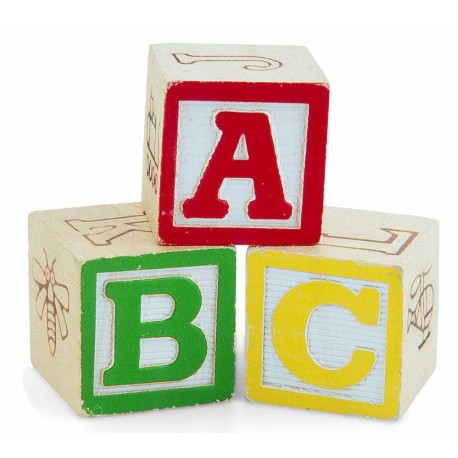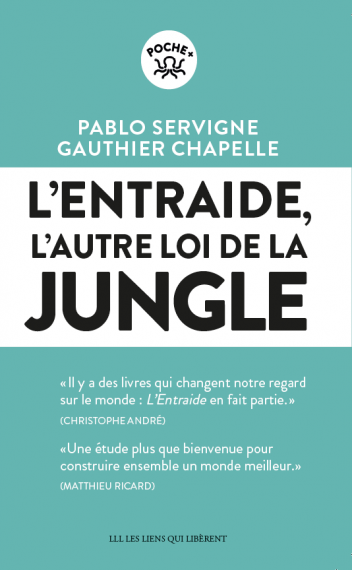This article is an essay on the following company issues:
Introduction▲
To try to form an opinion and write some items to think, I took the time to sit down and think about various more or less related subjects: the information consumption society, concentration, illusions, lifestyles, the relationship to life. If the article can find an echo or be useful, helpful in one way or another…
1. A mass of information at high speed▲
Not all inventions and discoveries are equal in the history of humanity. The inventions of printing and the Internet have considerably changed the game: it is the explosion of knowledge in many homes around the world.
Stephen Hawking, in his latest published work, notes that the inventions of printing and the Internet have profoundly changed our relationship to the world because, for the first time in the history of humanity, the transmission of words has begun to supplant transmission by genes in terms of the quantity of information for the survival of the human species.
In the 21st century, everything is going faster all the time. Personal travel, accessibility to information. With the invention of the train, the car and the plane as well as the democratization of their travel costs, it is the explosion of speed. The geographical area of people has grown considerably, for even more information exchanged and ingested. This contributes to shaping a perception of reality greater than that of previous generations. With a lack of maturity to manage this mass of information, this can create anxieties, fears. To the point of saturation? To the point of individual and/or collective indigestion?
2. The relation to l’attention▲
With this mass of information and knowledge, it is more difficult to stay focused on a task for a long time, to be in the flow over a long period. The tendency is to zap, to quickly move on to something else. Many things in daily life have therefore become consumer products with an expiration date or almost 🙁 There is also a confusion between what is important and what is urgent. This is not without harmful consequences on living together and interpersonal relationships.
In addition, many people no longer seem to know how to (re)sit. This may explain the growing number of people suffering from attention and concentration disorders. Sleep is also severely impacted. It is not just a relationship with screens. Having the ability to be at what you are doing is learned and worked on, but with today’s lifestyle, being able to focus on concentration is a challenge or impossible for many people.
This is why we must praise boredom, laziness, ataraxia 🙂
3. Plato’s Caves▲
We do not know how to unlearn and the “we” are many people. We still live in many rigid or vertical structures such as “the boss is always right”, including in places of knowledge and/or knowledge transmission. The different frameworks, places of life in which we evolve do not always allow us to emancipate ourselves. Many people therefore remain locked in their beliefs which constitute unshakeable certainties for them. We can see that these beliefs create a multitude of individual and collective “Plato’s caves”. How many caves are we victims of without realizing it?
4. The “Life is Beautiful” Syndrome▲
For my part, I think that we are all victims of the “Life is Beautiful” syndrome to a greater or lesser extent. A life-size post-World War II Plato’s cave (see previous paragraph). I have the strong feeling that collectively we have not taken the measure of what happened to humanity because of this war. 2.5% of the world’s population victimized and disappeared in 6 years with a genocide and dramatic psychosociological consequences. Faced with this collective denial of male violence, it will happen again sooner or later. We risk suffering or are already suffering a kind of backlash from the effect of the Second World War, a generalized conflict possibly in another form: civilizational wars more or less localized in the world, an explosion of terrorism: “war by terror”, class struggles because of inequalities and social injustices, more or less silent revolutions.
Why this expression for the syndrome? From the film entitled Life Is Beautiful directed by Roberto Benigni. In the film, to spare him the horror of life in a concentration camp, a father prisoner with his son makes him believe that the occupations in the camp are in reality a game for his birthday, that he must accomplish sometimes difficult tasks to reach the 1,000 winning points and thus obtain a gift. The director himself defines his film as a fable, a philosophical tale (cf. Wikipedia source below).
5. Was it better before?▲
My personal answer is: NO. (And far from it!). Even if there is still a lot to do, human progress occurs even if there can also be regressions. We would like more but we cannot hide millennia of ignorance and beliefs of all kinds with the snap of a finger.
In our contemporary era, technological discoveries have notably allowed a better quality of life. I decide to cite 2 concrete and major medical discoveries: radiology and the vaccine. Before, breaking a bone was particularly painful: impossible to locate the fracture, no plaster, a makeshift splint and a lot of time for the injury to heal if it was possible… All this without accessible and cheap painkillers. Without a vaccine, it was common to suffer from childhood diseases and die from them.
Also note the role of education. Access to education has allowed people to have a minimal awareness of inequalities, to report injustices, which means that we actually count more things that are wrong than we would have kept quiet about or not considered as such before. We therefore have in memory an unrealistic past and a harsher world in the present.
In addition, the living conditions for women were precarious: violence denied and silenced, including incest and rape, the fight to obtain women’s rights, studies, work, divorce, contraception, abortion, the dangers of pregnancy and childbirth.
Indeed, for women, pregnancy and childbirth constituted (and often still constitute) a major risk of death. This is evidenced by the use of this popular 17th century proverb often quoted in the following centuries, particularly in medical writings:
Femme grosse a un pied dans la fosse.
NICOT J., Trésor de la langue françoise, Paris, 1606.A personal translation
Pregnant woman has one foot in the ditch.
So no, it wasn’t better before. This myth of backwardness would be due to a cognitive bias: the negativity bias. An article from France Culture, dated February 17, 2020, written by Hélène Combis deals with this myth:
6. The trio Existence, Life, Survival▲
I personally observe that in our Western societies, many people exist, survive but do not live. Yes, these are harsh words at first glance, which can even be described as contemptuous, but that is not the case. In fact, I make a distinction between three different words in the dictionary: existence, life, survival. When we are born, we exist as human beings: our homo sapiens heart starts beating, we can breathe, feel, eat, move more or less easily. But is this really the life of a human being? Living the human condition, is it not much more than just experiencing the physiological phenomena inherent to the human species?
The whole is greater than the sum of its parts.
Aristotle, Metaphysics
Human life is not (should not be?) limited to existing or surviving, hence the verbal distinction. However, people give up on “living fully” for convenience or contentment, or fear of the unknown and the absence of instructions or explanatory notes on how to live their lives. In full awareness or without realizing it. Calmly or in anxiety about tomorrow.
We must be able to shape the person we are. A duty of society for every individual? Personally, I answer yes to this question. Besides, not being able to live, being prevented from experiencing life, not discovering what one knows how to do and/or be, one’s “identity of doing” AND realizing it, wouldn’t that be a tragedy to live through? “Being able to do what one is, being what one does”. It is not for nothing that people’s names are often or linked to job names. Hence also the importance of visibility, of recognition of what is done in a human life.
This subject is dealt with a conference of the UPP ALDERAN association entitled in French V comme Vivant et Vie (L as in Living and Life):
I am sharing a link to a series of conferences entitled The words of philosophy, thematic conferences of the UPP ALDERAN association where the notions of living and life are more detailed:
https://audiotheque.alderan-philo.org/mots-de-la-philosophie/2147-le-vivant-et-la-vie.html
7. History of paradigms of social life▲
Currently, in many societies including ours, the paradigm of social life is without a doubt: “Let the best win. The law of the strongest is always the best”, symbolized by the game Monopoly, invented at the beginning of the 20th century by Elizabeth Magie, an American designer of board games, while originally the game aimed to denounce an antisocial law. Of course, other political systems exist but individual success is honored to the detriment of the collective, of social groups and of the biodiversity of the planet itself.
But why must we follow this paradigm to “make society”? Why not instead adhere to another paradigm that could be formulated with these words: “If one person loses, everyone loses, including the living beings on the planet.” For the moment, it seems that it is difficult to imagine making this the leitmotif in the life of a country. Moving from a culture of selfishness to a culture of mutual aid requires a general awareness that is far from being acquired, or worse, the paradigm of competition is preferred, even if it is to the detriment of the greatest number. Exploitation, I write your name.
Moreover, in our socio-cultural context, what does helping mean? For many people, helping is about assistance and not about learning autonomy, support, accompaniment, encouragement. Social structures are too vertical, and when they are horizontal, we do not know how to use resources or trust people’s talents. For the moment, we do not know how to create a structured living together with fairness and benevolence. We are groping. Our democracies are thus closer to oligarchies and false technocracies.
I am sharing a link to a book that deals with mutual aid and this issue entitled in French L’entraide, l’autre loi de la jungle (Mutual aid, the other law of the jungle), written by Pablo Servigne and Gauthier Chapelle.
See also a blog post on mutual aid that I personally wrote in June 2024:
Conclusion▲
Currently, in the 21st century, our mental representations are greatly affected, impacted. The inventions of the Internet, the car, the plane, mobile telephony, social networks, holidays, and especially their accessibility for many people in a short period of time on the scale of a human life have profoundly changed social life. The time to adapt to change cannot be done at the same pace. We can introduce the notion of societal entropy: it takes a lot of energy to live in this context, even to simply live in one’s own way. The nuances between existence, life and survival are tenuous and depend greatly on one’s personal resources of all kinds. Because of the speed of change, the adaptability of life in a socio-cultural space-time is not easy. This inevitably creates incongruence on both the individual and societal levels.




















